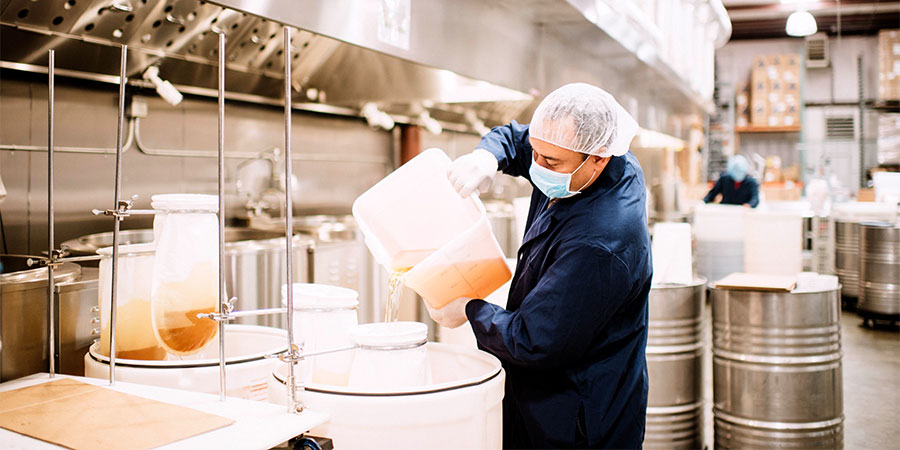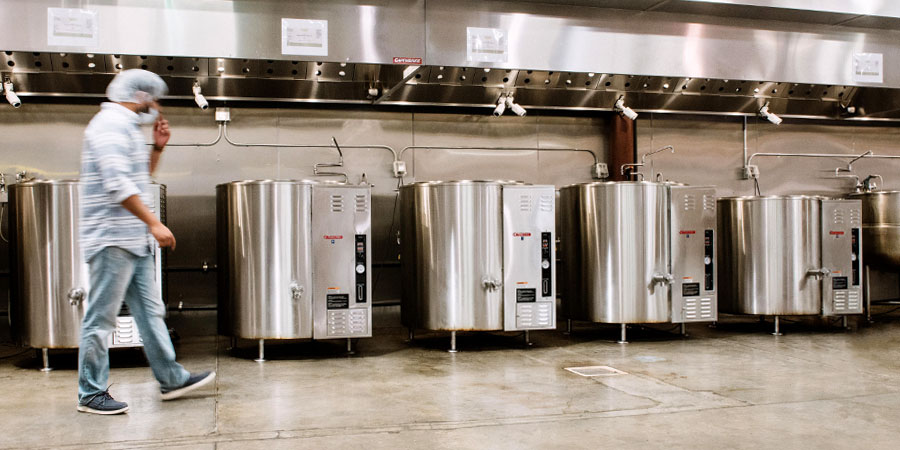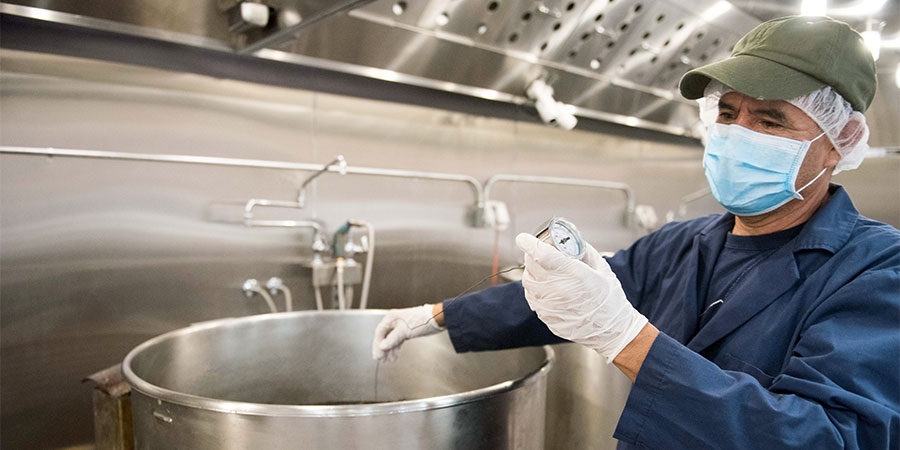Quality Control and Testing
In this article:
- Certified Organic Herbs
- Superior Quality Control
- Microbiologicals
- Heavy Metals
- Pesticides
- Identification
- Commitment to Excellence
Certified Organic Herbs
At Banyan Botanicals we take pride in providing our customers with the highest quality Ayurvedic herbs possible. We begin with a firm commitment to eco-stewardship, knowing that what is best for the planet is best for all of us. At this time, 98% of our bulk herbs are USDA certified organically grown and sustainably harvested. Banyan is the industry leader in certified organic Ayurvedic herbs, offering the largest selection available.
Superior Quality Control
Your health and well-being are our highest priority, and everything we do is managed with that in mind. We employ leading experts in the field of Ayurveda, and we have partnered with reputable laboratories here in the U.S. to ensure the purity and safety of our herbs.
Guided by the reputable standards of the AHPA (American Herbal Products Association), a national trade association and voice for the herbal industry, we have created an extensive system for maintaining the highest possible standards for quality control of our herbs that is in conformity with (and often exceeds) those specified by the AHPA.
Testing for botanicals is classified into the following four categories: Microbiologicals, Heavy Metals, Pesticides, and Identification.

Microbiologicals
Banyan requires microbiological testing and certificates of analysis from all of our suppliers for every batch of herbs; however, we do not solely rely on vendor certificates of analysis for testing data. All of our herbs and tablets are tested at third party labs. Our labs use all appropriate testing methods, with criteria and methods of analysis determined by the following third-party organizations and protocols:
- BAM (Bacteriological Analytical Manual) is the FDA’s preferred laboratory procedure for microbiological analyses of foods and cosmetics. These are a collection of procedures used for the detection of bacteria, viruses, parasites, yeast, mold, and microbial toxins.
- AOAC (Official Methods of Analysis) International evaluates chemistry, microbiology, and molecular biology methods of analysis.
- USP (simply USP) is an organization that sets standards for public health and related programs to help ensure the quality, safety, and benefit of medicines, supplements, and foods.
The standards are as follows and are measured in colony forming units per gram (CFU/g):
Total aerobic microbial count <10^7 CFU/g
Total combined yeast and molds <10^5 CFU/g
Coliform <10^4 CFU/g
E. Coli absent in 10 gm
Salmonella absent in 25gm
Staphylococcus aureus absent in 25 gm
Heavy Metals
Our herbs and products are tested for arsenic, cadmium, lead, and mercury using independent U.S. laboratories. The acceptable limits for daily intake are as follows:
Arsenic content shall not exceed 0.01 milligrams per daily dose (10 micrograms per day)
Cadmium content shall not exceed 0.0041 mg/d (4.1 micrograms per day)
Lead content shall not exceed 0.01 mg/d (10 micrograms per day)
Mercury content shall not exceed 0.002 mg/d (2 micrograms per day)
All of our products are within the safety guidelines stipulated by the American National Standards Institute/National Sanitation Foundation International Dietary Supplement Standard 173 (ANSI 173).
California's Proposition 65
To continue serving our California customers and to be in compliance with California's Proposition 65, we opted to add the warning label to our products sold in that state. As noted by the AHPA, “The Prop 65 warnings are well-intentioned, but can be alarming and even misleading, since the warnings often occur on products that present no actual risk.” Learn more about Prop 65.

Pesticides
For an herb to be certified organic, its entire production must be free from the use of pesticides, sewage sludge, ionizing radiation, and genetic engineering (GMOs). We do spot testing for pesticides in third-party labs to ensure the integrity of the organic certification of our partner farms.
The National Organics Program (NOP), is a regulatory program housed within the USDA Agricultural Marketing Service and is the gold standard in the United States for certified organic materials. A product is considered certified organic only after having been validated by an accredited certifying agency. All of our organic herbs and products are USDA certified organic.
Look for certification and the USDA seal on products labeled “organic.” It’s your assurance that the product has been grown and handled without harmful chemicals and pesticides, in accordance with the USDA’s strict organic standards.
Identification
Banyan uses the industry accepted practice of organoleptic testing for the proper identification of our botanicals. This involves the physical examination of the herbs using the senses of sight, taste, smell, and touch. Our staff includes recognized experts in the field of Ayurvedic herb identification.
In addition, qualified botanists in India conduct botanical verification of every species grown and also identify the species at the collection point. We use visual identification, microscopic identification (checking plant cell structures against pharmacopoeia standards), as well as High-Performance Thin-Layer Chromatography (HPTLC) and FTIR (Fourier Transform Infrared Spectroscopy) to identify and verify that what we are collecting is actually the correct species. Only on passing these tests do the plants proceed for further cleaning and drying.
Once dry, the herbs are subjected to tests in accordance with the Ayurvedic Pharmacopoeia of India. This reveals that the levels of solids, ash content, and active ingredients present in the plants actually conform to the recommended reference ranges.

Commitment to Excellence
All of our procedures at Banyan Botanicals are in alignment with industry standards and in accordance with the Dietary Supplement Health Education Act (DSHEA) and the FDA’s cGMPs (current Good Manufacturing Practices).
We are continually making improvements to our facility, systems, and procedures. Every change we make is structured and characterized to be fully compliant with the USDA’s National Organic Program, ANSI Standard 173 for heavy metals specifications, AHPA standards for microbiologicals, and the cGMPs for Dietary Supplements.
We are committed to offering high quality products. All of our procedures are in alignment—if not ahead of—industry standards in all of these areas, and we intend to stay ahead.

